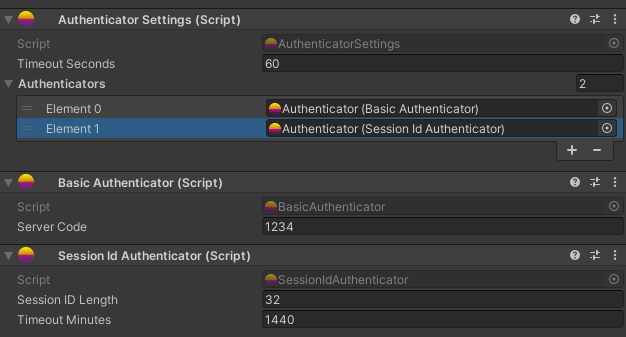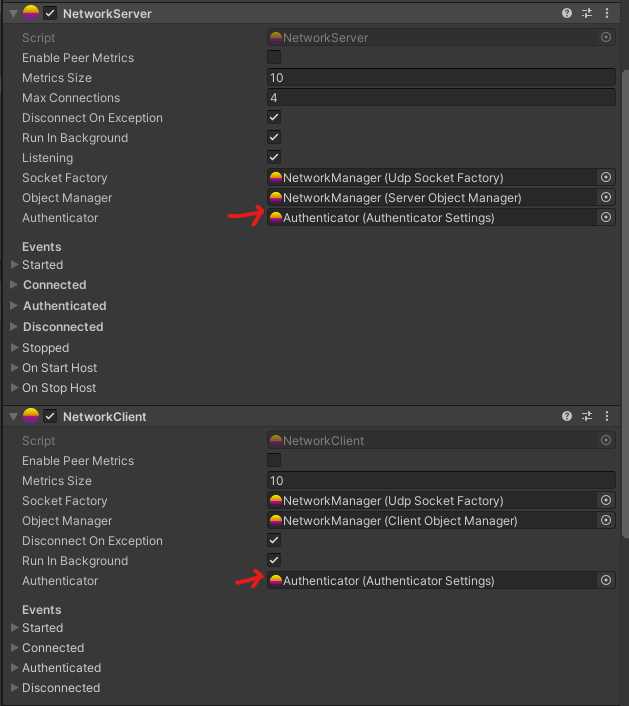Authenticator Settings
Add AuthenticatorSettings to your NetworkManager and assign a reference to NetworkServer and NetworkClient.
AuthenticatorSettings allows you to configure the timeout duration and specify which authenticators are available.


Server Side
The list of authenticators on the server represents the options available for client authentication. Clients can choose any of these authenticators to become authenticated.
To determine which authenticator the player used, you can check the NetworkPlayer.Authentication.Authenticator property.
Client Side
On the client side, you need to use the SendAuthentication method provided by the authenticator to send a message to the server. This is necessary because most authenticators require additional information, such as player login details.
The SendAuthentication method ensures that the authentication message is properly wrapped and sent to the server. It should be used instead of directly calling player.Send, as the authenticator message is wrapped in an internal AuthMessage message.
However, it's important to note that authenticators typically should not call the SendAuthentication method automatically themselves. Instead, you can create an additional component, such as the CreateSession component for the SessionIdAuthenticator class, to handle the automatic invocation of SendAuthentication.
The CreateSession component can be responsible for initiating the authentication process and automatically calling the SendAuthentication method when needed. This allows the authenticator to automatically use the session token provided by the server for seamless reconnection. Keep in mind that it is recommended to use only one authenticator with this automatic behavior, as the server processes only one authentication per player.
By separating the responsibility of calling SendAuthentication to an extra component, you can have more flexibility and control over the authentication flow, while ensuring that authenticators focus on their core functionality.